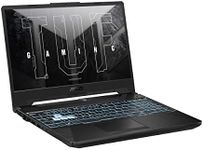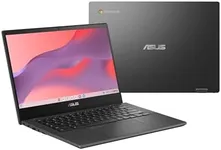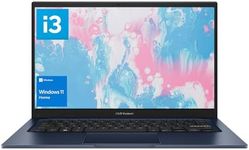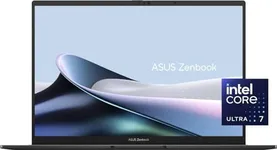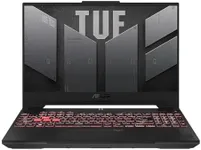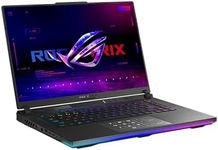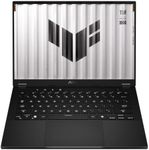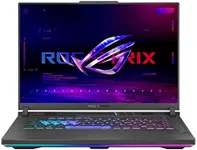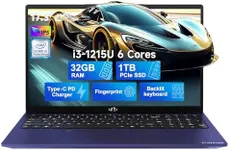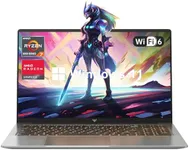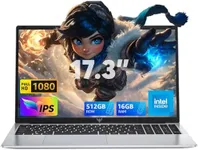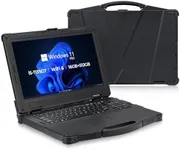Buying Guide for the Best Asus Laptops
When choosing an ASUS laptop, it's important to consider your specific needs and how you plan to use the device. Whether you're a student, a professional, a gamer, or someone who needs a laptop for everyday tasks, ASUS offers a variety of models to suit different requirements. To make an informed decision, you should focus on key specifications that will impact your user experience. Understanding these specs will help you find the best fit for your needs.Processor (CPU)The processor, or CPU, is the brain of your laptop. It determines how fast and efficiently your laptop can perform tasks. For basic tasks like web browsing and word processing, an Intel Core i3 or AMD Ryzen 3 processor will suffice. For more demanding tasks like video editing or gaming, look for an Intel Core i5/i7 or AMD Ryzen 5/7. If you need top-tier performance for professional-grade applications, consider Intel Core i9 or AMD Ryzen 9 processors. Choose a processor based on the complexity and intensity of the tasks you plan to perform.
Memory (RAM)RAM, or Random Access Memory, is crucial for multitasking and running applications smoothly. For basic use, 4GB of RAM might be enough, but 8GB is generally recommended for a smoother experience. If you plan to run multiple applications simultaneously or use more demanding software, 16GB or more will provide better performance. Consider your multitasking needs and the types of applications you use when deciding on the amount of RAM.
StorageStorage determines how much data you can save on your laptop. There are two main types: HDD (Hard Disk Drive) and SSD (Solid State Drive). SSDs are faster and more reliable but tend to be more expensive. For general use, a 256GB SSD is a good starting point. If you store a lot of large files like videos or games, consider a 512GB or 1TB SSD. Some laptops offer a combination of SSD and HDD, providing a balance of speed and storage capacity. Choose based on your storage needs and preference for speed.
Graphics Card (GPU)The GPU is important for rendering images, videos, and animations. Integrated graphics are sufficient for basic tasks and light gaming. For more intensive gaming, video editing, or 3D rendering, a dedicated GPU like NVIDIA GeForce or AMD Radeon is necessary. Entry-level GPUs are good for casual gaming and basic editing, while mid-range and high-end GPUs are better for more demanding tasks. Your choice should depend on how graphically intensive your activities are.
DisplayThe display affects your viewing experience. Consider the size, resolution, and type of display. A 13-14 inch screen is portable and good for travel, while 15-17 inch screens offer more workspace and are better for media consumption. Full HD (1920x1080) resolution is standard and provides clear visuals. Higher resolutions like 4K offer sharper images but can be more expensive and drain battery faster. Also, consider whether you need a touchscreen or a high refresh rate for smoother visuals. Choose based on your preference for screen size, clarity, and additional features.
Battery LifeBattery life is crucial if you need to use your laptop on the go. Laptops with smaller screens and energy-efficient processors tend to have longer battery life. For basic tasks, a laptop with 6-8 hours of battery life may be sufficient. For more intensive use or longer periods away from a power source, look for laptops that offer 10 hours or more. Consider how often you'll be away from a power outlet and choose a laptop with battery life that matches your usage patterns.
Build Quality and PortabilityBuild quality affects the durability and feel of the laptop. Metal bodies are more durable and premium-feeling, while plastic bodies are lighter and more affordable. Portability is important if you need to carry your laptop frequently. Lighter laptops (under 3 pounds) are easier to carry, while heavier laptops may offer more features but can be cumbersome. Consider how often you'll be transporting your laptop and choose one that balances durability and portability according to your needs.
ConnectivityConnectivity options determine how you can connect your laptop to other devices. Look for a variety of ports such as USB-A, USB-C, HDMI, and an SD card reader. USB-C ports are versatile and support fast data transfer and charging. HDMI ports are useful for connecting to external displays. An SD card reader is handy for photographers. Consider the peripherals you use and ensure the laptop has the necessary ports to accommodate them.
Operating SystemThe operating system (OS) is the software that manages your laptop's hardware and software resources. ASUS laptops typically come with Windows, which is versatile and widely supported. Some models may offer Chrome OS, which is simpler and more secure but limited in software compatibility. Choose an OS based on your familiarity and the software you need to use. Windows is generally a safe choice for most users, while Chrome OS is suitable for those who primarily use web-based applications.

